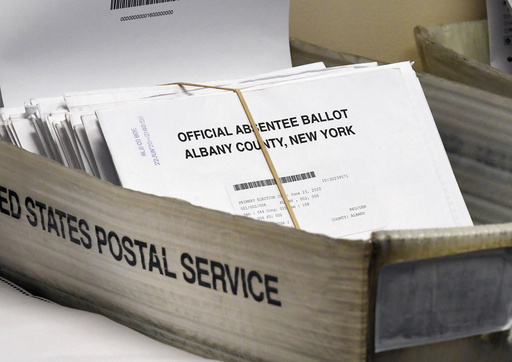The New York State Court of Appeals has upheld a law that allows all registered voters to vote by mail, dismissing a challenge from Republicans. The court ruling, with a majority of 6-1, affirmed that the voting expansion law passed by the Legislature did not violate the state’s constitution. The challenge was part of a broader GOP effort to tighten voting regulations post-2020 election and was spearheaded by U.S. Rep. Elise Stefanik.
The lawsuit argued that the state constitution required most people to vote in person, but Chief Judge Rowan Wilson stated in the majority opinion that there was no such mandate. This decision means that millions of New Yorkers expected to vote in the upcoming election will have the option to cast their ballots by mail, a privilege that was previously limited to a small number of individuals before the rule changes initiated in 2020 during the COVID-19 pandemic.
Republican party members criticized the court’s ruling, with Stefanik calling New York’s court system corrupt. On the other hand, Governor Kathy Hochul and Attorney General Letitia James, both Democrats, praised the decision, emphasizing the importance of upholding the right to vote without unnecessary barriers.
Prior to the recent law changes, New Yorkers could only vote by absentee ballot in specific circumstances, such as military service or illness. However, the landscape shifted in 2020 when Governor Andrew Cuomo allowed mail-in voting to mitigate the spread of COVID-19. This sudden change led to more than 1.5 million New Yorkers voting by absentee ballot in the presidential election of that year, revealing a trend where Democrats were more inclined to vote by mail than Republicans.
Even though a constitutional amendment in 2021 to make mail-in voting permanent was rejected, lawmakers later implemented the Early Mail Voter Act, which effectively expanded mail-in voting without amending the constitution. The court’s majority opinion noted the quick legislative action following the failed constitutional amendment, stating that it may be perceived by some as disregarding the voters’ will, but emphasized the court’s responsibility to interpret the constitution.
While the majority argued that the state constitution does not explicitly require in-person voting, dissenting Judge Michael Garcia contended that absentee voting was traditionally restricted to those unable to vote in person, and the new universal mail voting legislation overstepped that limitation. Garcia criticized the legislature for changing the law despite the failed amendment, suggesting that the court had a duty to rectify the situation to honor the people’s will.
